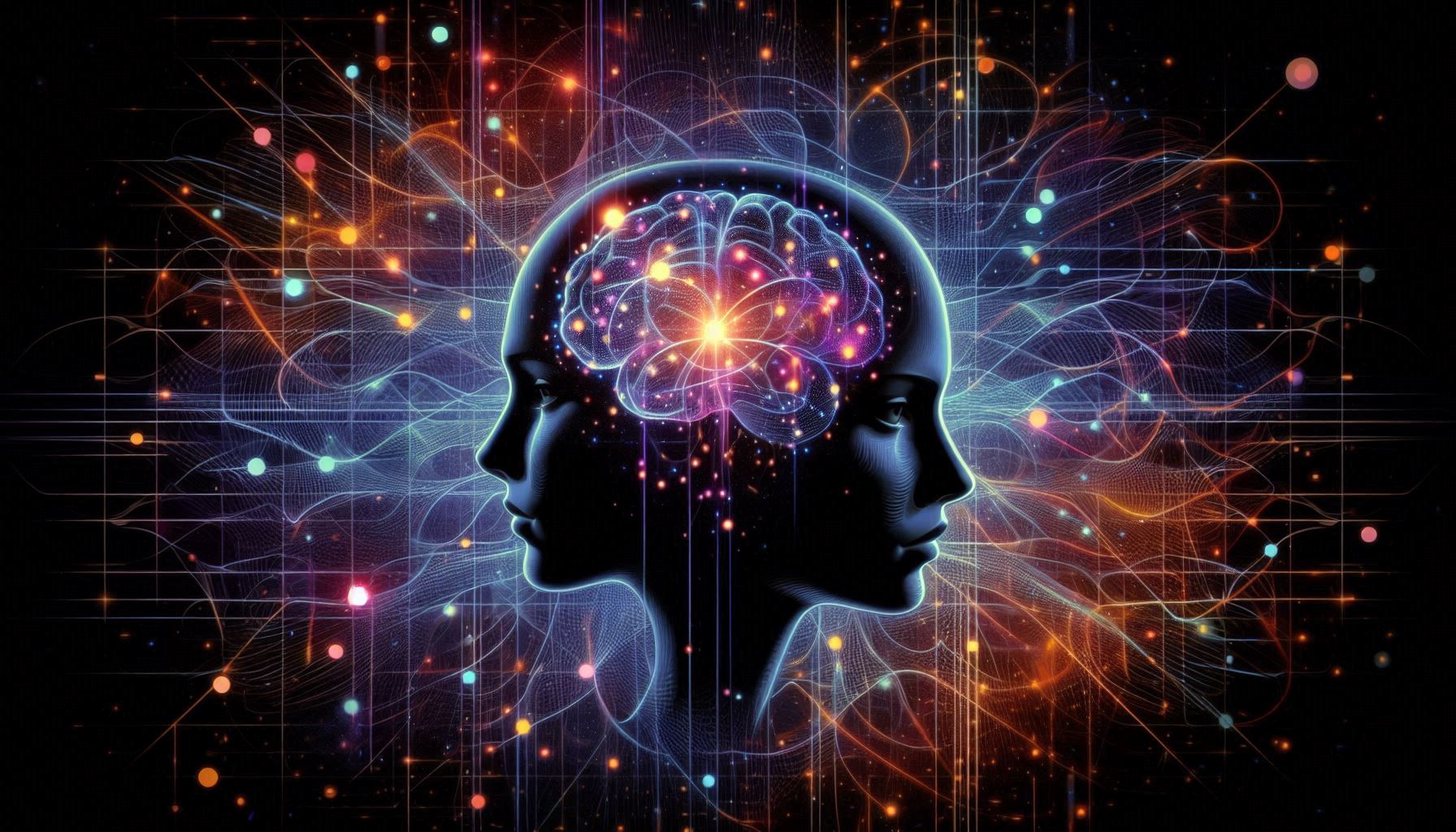Quantum Entanglement in the Brain: A Link to Consciousness?
In recent years, the question has increasingly arisen: could the mysterious world of quantum physics influence the workings of the human brain and our consciousness? The concept of quantum entanglement, where particles become interconnected and interact, divides the scientific community. Why does this matter, beyond simply wanting to understand how our brains work?

The relationship between quantum physics and consciousness is one of the most exciting and yet most controversial topics in modern science. The hypothesis that quantum processes, such as quantum entanglement and quantum superposition, play a role in our consciousness raises the possibility that brain function is even more complex and harder to grasp than previously thought. From this perspective, the brain might indeed seem mysterious, further fueling interest in the secrets of the human mind.
Quantum Superposition
The principle of quantum superposition states that a quantum system, such as a particle, can exist in multiple states simultaneously until it is measured. For example, an electron can be in two different locations or two different energy states at the same time, as long as no measurement occurs to collapse the superposition into a single, definite state. Superposition is a fundamental concept in quantum mechanics, radically different from classical physics where an object can only exist in one specific state at any given time. The phenomenon is often illustrated by Schrödinger's cat thought experiment, where the cat is simultaneously alive and dead until observed. In quantum computing, superposition allows quantum bits (qubits) to represent multiple possible states at once, exponentially increasing computational power.
The Orch-OR Theory
The Orchestrated Objective Reduction (Orch-OR) theory, developed by Roger Penrose and Stuart Hameroff, proposes that quantum computations occur within microtubules in the brain. According to this theory, this could be the basis of consciousness, as quantum processes might explain complex brain functions like decision-making and memory.
Quantum Cognition
Another approach, quantum cognition, applies quantum mechanical principles to model cognitive phenomena without necessarily assuming that the brain operates quantum mechanically. This approach can help understand complex mental processes, such as decision-making and memory, using quantum concepts like superposition and entanglement as analogies or mathematical frameworks.
Quantum Entanglement and Neural Synchronization
Researchers at Trinity College Dublin used a modified MRI machine to examine proton spins in the brain, suggesting they might become entangled. This research could offer new insights into the mechanisms of consciousness. Some scientists propose that quantum entanglement might naturally occur within brain structures, particularly in the myelin sheaths of neurons, and could play a role in synchronizing neural activities necessary for various cognitive functions.
The Decoherence Problem
One major critic of quantum brain theories is Max Tegmark, who argues that quantum states in the brain would decohere (lose their quantum nature) far too quickly—on sub-picosecond timescales—to be useful for neural processing. The brain's warm, wet, and noisy environment is not conducive to maintaining quantum coherence, unlike controlled laboratory conditions. Critics point out that typical brain responses occur on millisecond timescales, which are trillions of times slower than the proposed quantum timescales.
A cornerstone of the debate surrounding the role of quantum processes in consciousness is that if these phenomena are indeed crucial, the brain's mechanisms become so complex that silicon-based artificial intelligence (AI) relying on binary computations would be much less likely to achieve consciousness. Such AI systems currently process data and make decisions based on binary operations, which are fundamentally different from quantum mechanical principles. If quantum processes truly dominate in the brain, AI researchers might need an entirely new paradigm to achieve consciousness.
Quantum Entanglement
Quantum entanglement is a phenomenon in quantum mechanics where two or more particles become linked in such a way that changing the state of one particle instantaneously affects the other(s), regardless of the distance separating them. This entangled state is a quantum state in which the properties of the particles, such as spin or polarization, are interconnected such that the system must be described as a whole, while the individual particles cannot be described independently. Entanglement can be broken if the particles interact with their environment, a process called decoherence. The phenomenon of quantum entanglement is fundamental to quantum physics and is particularly important in fields like quantum computing and quantum cryptography.
However, linking quantum theories and consciousness faces numerous scientific challenges. As mentioned earlier, quantum states are extremely short-lived in biological environments, and the current scientific consensus suggests that brain function likely does not rely on such phenomena. If there isn't any "spooky"—meaning mysterious—quantum mechanical system directing consciousness in the brain, then current AI systems built on traditional computational models have a greater chance of achieving or approaching consciousness.

The Lack of Experimental Evidence
While quantum theories are fascinating, there is currently no convincing empirical evidence that quantum processes play a significant role in brain function. Many members of the scientific community therefore remain skeptical, emphasizing the need for more rigorous experimental proof to support quantum brain theories.
Conclusion
Although the connection between quantum entanglement and the brain remains an exciting area of research, it faces significant challenges and skepticism. The lack of empirical evidence and the problem of decoherence present major obstacles to the acceptance of quantum brain theories. However, ongoing research and the development of new theoretical models suggest that this field is far from closed. Future scientific advances in neuroscience and quantum physics may provide deeper insights into the relationship between consciousness, cognition, and quantum processes.